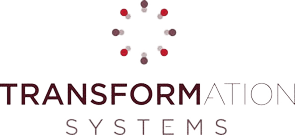
Services
Strategic Planning
We have developed a framework that is intended to stimulate a conversation with our clients rather than to prescribe a singular approach. We take particular care to customize the process with consideration given to the unique circumstances, lessons learned from their earlier planning experiences and the existing capacities of the organization to implement what is planned. We would expect to have several conversations with the organization’s leadership to determine the specific elements requiring customization before commencing a project.
Our approach emerges from a set of assumptions about people and systems. These assumptions are straightforward and are reflected in our work and our relationships with clients.
- The future of any system is largely a matter of choice – not luck.
- People are more likely to support decisions when they participate in the process.
- Eventually, the planning stops and action must be taken. If you are not keeping score,you are only practicing.
Governance as Leadership
Governance structures in nonprofit organizations are varied, transitions can be frequent and trustees often lack experience in the governance role. Yet the effectiveness of a Board has a tremendous impact on an organization. We work with both veteran and beginning trustees to develop an understanding of the fundamental of governance, as well as the important strategic and generative roles trustees play.
A working understanding of roles, responsibilities and the standards of good governance provide a strong foundation for trustees. We also share best practices in onboarding new members, committee structures, meeting efficiency and relationships with the CEO. When thisis done within the context of the organization’s particular structure and needs, learning is accelerated. This work can be blended with annual goal setting processes and orientations for new members.
We also help boards operate intentionally in the strategic and generative areas, creating more effective governance and stronger organizations.
Executive Coaching
Executive Coaching is an additional way of learning for leaders. The leader is often the most isolated learner in an organization. To “learn” is to reveal a need, a question, a problem, an issue that thus far, has gone unresolved. The coaching relationship allows the leader to reveal issues, concerns or questions free of judgment, risk or personal agendas. As a learning structure, coaching is highly individualized and personalized for each client. Coaching is action and results oriented and transferrable – what is learned through the coaching experience is highly portable to subsequent professional and personal challenges.
